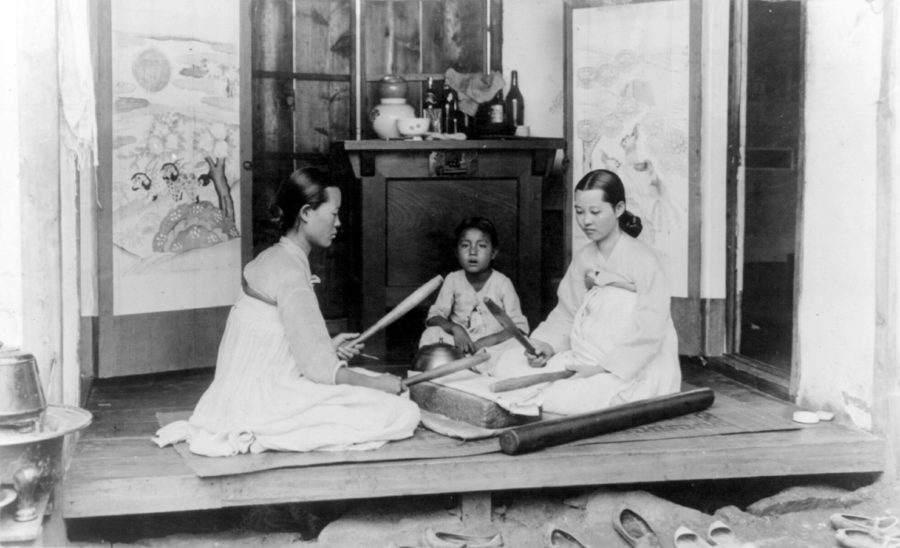Shaw: Minority women deserve respect
Korean_women-ironing_with_sticks-1910s.jpg
May 20, 2018
Time and time again, minority women, especially of Latina or Asian descent, are objectified and stereotyped both in the media and through direct harassment.
The suffering of Asian women is especially prevalent in times of war, when they would be forced into prostitution and offered to foreign soldiers. During World War II, the term “comfort women” was used to describe the women subjected to forced prostitution under the Imperial Japanese army.
Historic events, such as the Rape of Nanking, are testimony to how brutal these Japanese soldiers were in dehumanizing women in other Asian countries.
This pattern of abuse by the Japanese during World War II was continued by Americans during the Korean War, where Korean women were often forced into prostitution — by their own government — to service American soldiers. This resulted in a large amount of orphaned, interracial children born on the Korean peninsula when America ceased active ground support.
Each and every one of these orphaned children serves to illustrate how American soldiers objectified Korean women, expressing little to no care or responsibility for the results of their actions. Many of these orphaned children grew up not knowing their fathers, and might not have had any hope of finding them if not for contemporary innovations, like DNA testing.
However, the problem during the Korean War was not solely the oversexualization of Korean women by American soldiers.
It was also the betrayal of Korean women by their government.
The Korean government understood that the American soldiers had a penchant for Korean women; rather than protecting their women, though, they sold them off to the Americans like slaves.
Yet neither the Korean or Japanese governments admitted to the large role they played in the dehumanization of their women — ranging from complicity to active human trafficking.
Latinas also struggle with objectification; the media has unfairly distorted the way they are seen in America, constantly sexualized in movies, magazines, advertisements and more. Rather than portraying them as regular people, they are often typecast into roles that fit stereotypes.
For example, Ugly Betty star America Ferrera revealed that she felt typecast as a Latina woman, asserting that Latina women are “relegated to hyper-sexualized objects, just to fit in … completely limit[ing her] career and [herself] as a human being.”
While this problem is certainly prevalent at the celebrity level, it often alters public perception of Latinas — causing the issue to trickle down to others.
A guest contributor of The Feminist Wire, Shantyana Lledin, talks about her experience with this phenomenon in her article, “I’m Not Your Spicy Latina.” She states that she had no part in creating the image of the “spicy Latina,” but “[she’s] told to fit into this subordinate role.”
It’s clear that the stereotypes supported by media and other outlets had adverse effects on both Ferrera and Lledin.
The oversexualization of minority women is by no means limited to Asian and Latina women, though.
Female African American slaves were often raped by their masters. Native American women were often raped by European colonists. The dehumanization of minority women is historically ubiquitous.
It is the media’s responsibility to accurately represent minority groups — thus preventing these stereotypes from further developing in popular culture.
While these topics are certainly difficult to bring up, they are crucial to be aware of and understand, in order to create a future that is inclusive and fair.
Common racial fetishes in our society, such as yellow fever, are not harmless; they often have close ties to racism and dehumanization.
Oversexualization of minority women is not flattering; it is sickening.
















